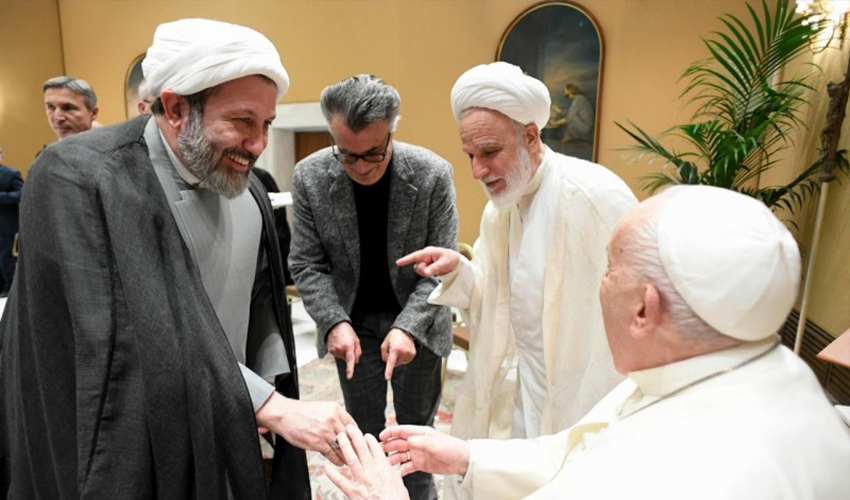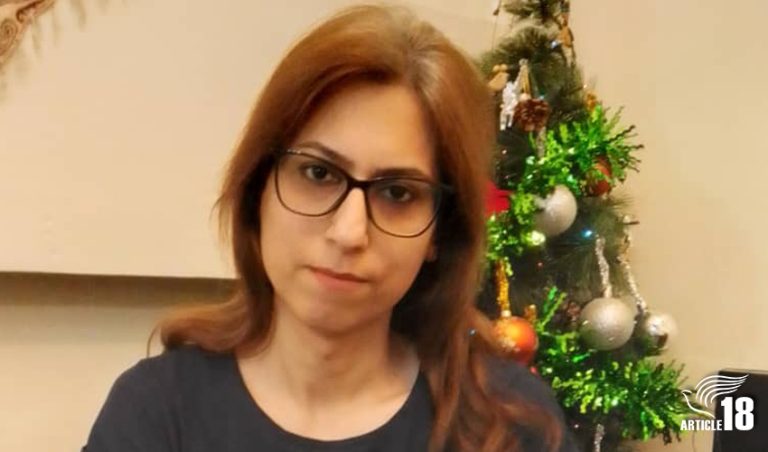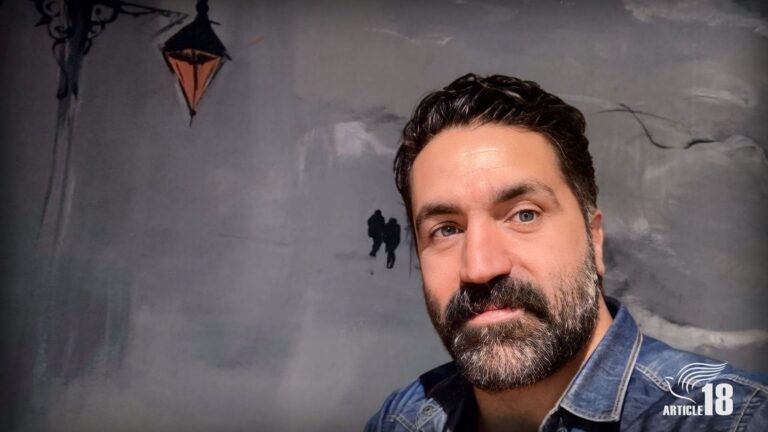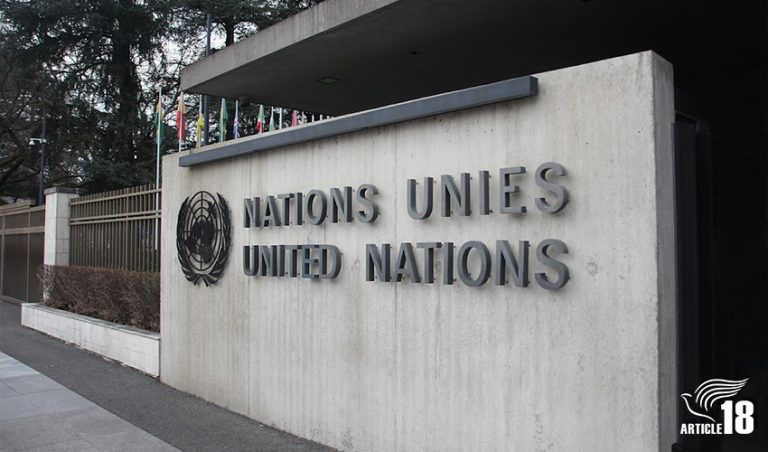
Pope Francis greets Mohammad Mehdi Imanipour. (Photo: Vatican Media)
Pope Francis has said it is “a lie” to say the Catholic Church is opposed to the government of the Islamic Republic of Iran, but that religious freedom is the “cornerstone” of human rights.
The pope, speaking in Rome last Wednesday as the Vatican hosted a delegation from the “Centre for Inter-religious & Intercultural Dialogue” in Tehran, said: “The Church is not against the government. To say otherwise is a lie.”
He added that he was “aware” of the “challenges” the Church faces “as it perseveres in bearing witness to Christ and contributing, quietly but significantly, to the good of society as a whole, while rejecting all religious, ethnic or political discrimination”.
Yet while he refrained from criticising the Iranian authorities, the pope said: “Freedom of conscience and religion is the cornerstone of the entire edifice of human rights. Nor is freedom of religion limited to the expression of worship; it also entails complete freedom in the matter of one’s own beliefs and religious practice.”
Iran is a signatory to the International Covenant on Civil and Political Rights (ICCPR), Article 18 of which enshrines religious freedom, including the freedoms to choose and change one’s religion, and to share one’s beliefs with others.
However, such freedoms do not exist in the Islamic Republic of Iran, as evidenced by the trial yesterday of 12 Christian converts in the northern city of Nowshahr, whose indictment cited their “identifying themselves as Christians” as evidence of their alleged criminality.
On the same day that Pope Francis was making his comments in Rome, the Third Committee of the UN General Assembly in New York passed a resolution calling on the Iranian government to “cease monitoring individuals on account of their religious identity, to release all religious practitioners imprisoned for their membership in or activities on behalf of a minority religious group … and to ensure that everyone has the right to freedom of thought, conscience and religion or belief, including the freedom to have, to change or to adopt a religion or belief of their choice, in accordance with its obligations under the [ICCPR]”.
The pope said the small Catholic Church in Iran, which is believed to number just 2,000-6,000, “is close to my heart”, saying he had shown his affection for the country by choosing to appoint its archbishop, Fr Dominique Mathieu, who was present at the event in Rome, as one of his new cardinals.
“This decision expresses my closeness and concern for the Church in Iran, and in turn honours the entire country,” he said.
As part of its own coverage of the event, a member of the Iranian delegation, Mohammad Mehdi Imanipour, told Iranian state TV that Pope Francis had “stressed how Christian minorities in Iran are allowed to freely meet together and worship in churches across the country, without restriction”.
But if the pope did utter such words, they were not among those spoken in his public address.



0 Comments